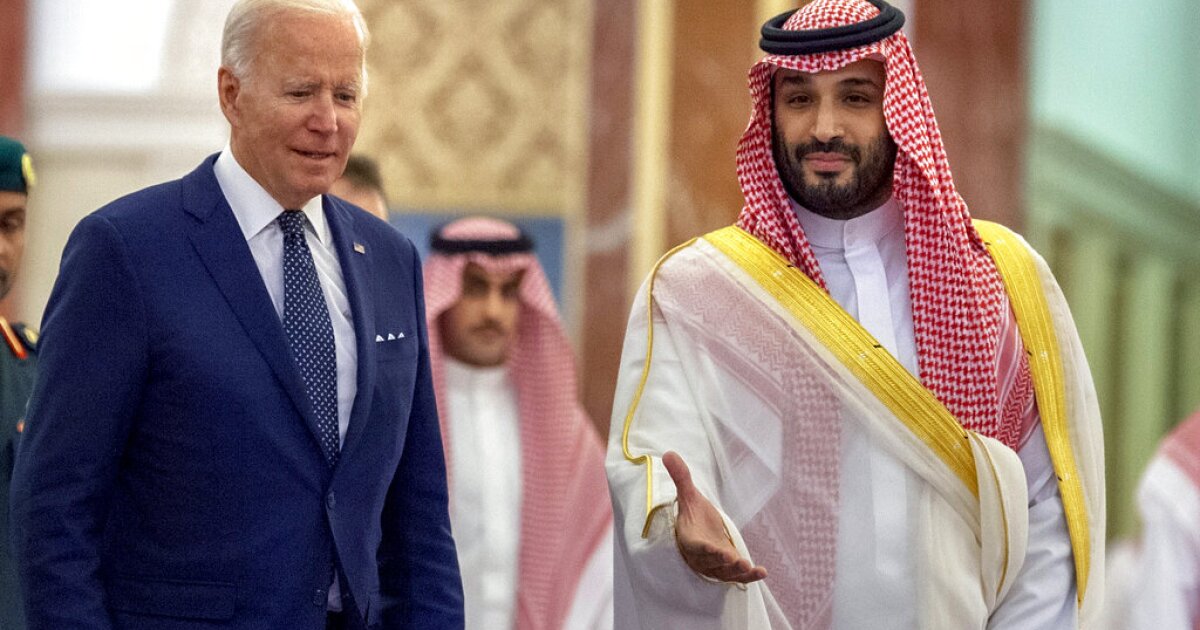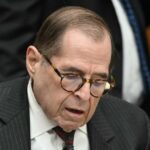

President Joe Biden’s attempt to bridge ties with Saudi Arabia is under renewed scrutiny after a coalition of oil-producing states led by the kingdom slashed oil production quotas by 2 million barrels per day, defying Washington at a time of political peril for the White House and Democrats.
The decision by OPEC threatens to hike gas prices ahead of the midterm elections — a fate Biden sought to avoid when he met with Saudi Crown Prince Mohammed bin Salman this summer and proclaimed the countries in agreement “on the need to ensure adequate supplies to meet global needs.”
White House officials slammed the cuts as “misguided” and charged that the consortium had aligned itself with Russian President Vladimir Putin over the war in Ukraine.
Set to take effect in November, the decision comes amid concerns of a global economic downturn, which would sink demand. Still, it is more aggressive than many experts anticipated.
RUSSIA CLAIMS UKRAINIAN INTELLIGENCE BEHIND DARYA DUGINA ASSASSINATION IN MOSCOW
Bob McNally, an energy analyst at the Rapidan Energy Group, said OPEC+ was trying to avoid a slide in oil prices or what it views as a “price meltdown” unwarranted by market fundamentals.
“It’s about stability and signaling more than any observed softening in supply and demand balances,” said McNally, a former energy adviser to President George W. Bush.
A smaller cut could still blunt downward price momentum, said Greg Priddy, an independent oil consultant. “But this sends a larger message.”
Behind the scenes, Biden officials leaned on their counterparts to stave off a cut, with talking points drafted by the White House warning that it could constitute a “hostile act,” according to CNN.
A rise in U.S. gas prices poses a major political risk for Democrats with just a few weeks until the midterm elections.
Biden has spent months working to tamp down costs, overseeing the largest sale of oil from the Strategic Petroleum Reserve to account for a shortfall from Western sanctions on Russian energy exports. Those releases were expected to stop in about a month, with Biden’s press secretary telling reporters on Tuesday that the United States was “not considering new releases.”
The U.S. was working privately to assuage concerns, assuring OPEC producers that it would commit to a 200 million barrel buyback to refill the SPR if the consortium decided against a cut, CNN reported.
Instead, the rebuke in Vienna on Wednesday set off a flood of blistering condemnation and a promise by Biden’s top economic and national security advisers to release more U.S. oil as needed.
It has also cast a shadow over Biden’s visit to Jeddah in July, where the president laughed off the backlash from a fist bump with Saudi Crown Prince Mohammed bin Salman, whom U.S. intelligence blamed for the brutal 2018 murder of journalist Jamal Khashoggi.
Analysts said the production cut revealed the depth of the president’s miscalculation after a monthslong rapprochement with Saudi Arabia that relented on a campaign pledge to hold the kingdom at arm’s length.
“When it comes to U.S. efforts to get Saudi Arabia to do what we want, Washington is all bark and no bite,” said Justin Logan, a Cato Institute senior fellow. “And Riyadh knows it.”
Logan said the U.S. had little to show after appearing to capitulate to Saudi leaders and called it “unseemly” for the U.S. to act “like Riyadh’s errand boy,” a charge he leveled at presidents of both parties.
“Having convinced itself that the Middle East is a key arena for competition with China, that Saudi is a bulwark against chaos in the Middle East, and MBS is a friendly hand on the oil taps, the Biden administration gave MBS all the leverage in the relationship,” Logan told the Washington Examiner, referring to the crown prince, adding that “MBS is now using that leverage.”
The decision to appease the crown prince now appears as a costly gamble, with Biden on Wednesday telling reporters that he was concerned about the cuts, calling them “unnecessary.”
After handing the crown prince “his post-Khashoggi rehabilitation” in July and showing it would not link energy cooperation to security support or arms transfers, Priddy said Saudi leaders “don’t care” about blowback from the White House over production cuts.
He said a threat to weaponize anti-competition rules against OPEC was “meaningless,” explaining that if Washington wanted to place “real pressure” on major gulf producers, the U.S. would privately hint at withholding some security assistance.
Some lawmakers urged a stronger response on Wednesday, with Rep. Tom Malinowski (D-NJ) announcing legislation requiring the U.S. to withdraw its troops and missile systems from Saudi Arabia and the United Arab Emirates.
Sen. Ed Markey (D-MA) said he would reintroduce a bill to demand Biden’s trade representative pursue a dispute over oil-producing countries’ anti-competitive practices.
These efforts are unlikely to dispel worries about rising energy costs, which could have a considerable impact on the elections next month. As prices began to drop over the summer, Biden’s approval rating improved by about 10 percentage points, according to the RealClearPolitics polling average, lifting Democrats’ hopes of blunting an expected sweep of Republican wins.
Cutting oil production may also exacerbate inflationary pressures, driving up prices for other basic goods and services and gnawing away at voters’ pocketbooks.
According to a recent Monmouth University poll, 82% of respondents said the government needed to do more to bring down inflation, with voters of all political stripes rating it as a top concern.
CLICK HERE TO READ MORE FROM THE WASHINGTON EXAMINER
Asked about the cuts, UAE Energy Minister Suhail al Mazrouei stressed the risk of a global recession and its impact on prices.
Ali Shihabi, a Saudi national in Washington close to the crown prince, said the decision “had nothing to do” with Biden or the U.S. Shihabi said it was about market fundamentals.
“Oil prices have dropped by nearly 50% from highs in the last six months, and with a recession looming, Saudi feared an oil price collapse,” he told the Washington Examiner. “After all, oil is Saudi Arabia’s economic lifeline.”






